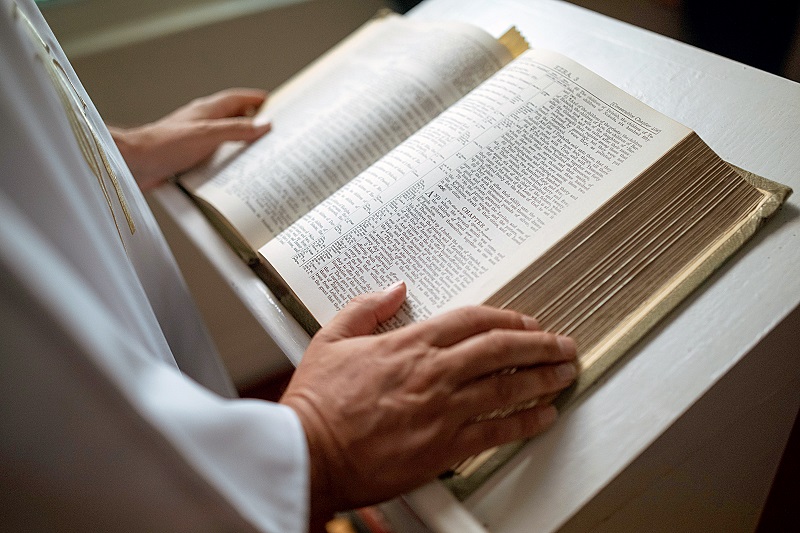Last edited on 12/Dec/2020
The Bible’s Answer
Humans Are Both a Body and a Soul
The Bible’s answer to this question is no, the body is not the soul (i.e. spirit). There are some groups, such as the Jehovah’s Witnesses cult ¹ (the Watch Tower Society) and the Christadelphian cult, which falsely teach that humans are nothing more than a body, and that the “soul” is simply another word for the “body”. Furthermore, because of this false belief, they also teach that once people die, they cease to exist rather than go straight to Heaven or Hell, and that they will only “wake up” at Christ’s second coming, when he will resurrect all people’s bodies. (A heresy which is called “Soul Sleep”.)
The Bible, on the other hand, teaches that human beings have both a body and a soul, or to put it another way, that we are both a body and a soul:
Do not fear those who kill the body but cannot kill the soul; rather fear him who can destroy both soul and body in hell. (Matthew 10:28, NRSV)
Here, Jesus himself said that humans cannot kill the soul, only God can, so this confirms that the body is not the soul. To say that we are either one or the other is simply an unbiblical assertion.
What Is the Soul?
The soul, also known as the spirit, is the immaterial part of every human being—our spiritual or rational nature—which is temporarily separated from our bodies after we die.² The Bible confirms this in the following passage:
And all were weeping and mourning for her, but he said, “Do not weep, for she is not dead but sleeping.” 53 And they laughed at him, knowing that she was dead. 54 But taking her by the hand he called, saying, “Child, arise.” 55 And her spirit returned, and she got up at once. And he directed that something should be given to her to eat. (Luke 8:52–55, ESVUK)
Here, we see that Jairus’ daughter’s “spirit” (soul), which had left her body after she had died, “returned” to it after Jesus had resurrected her. In her resurrection, Jesus united her soul and body once again. Likewise, the apostle James said:
For as the body apart from the spirit is dead, so also faith apart from works is dead. (James 2:26)
This is further proof that a resurrection is simply a matter of the soul or spirit returning to the body, which gives the body life. The soul is clearly not the body.
We Do Not Cease to Exist Temporarily When We Die
In addition, the Bible rejects the notion that once people die, they cease to exist until Christ’s second coming, in the following passage:
Thus we are full of courage and would prefer to be away from the body and at home with the Lord. 9 So then whether we are alive or away, we make it our ambition to please him. (2 Corinthians 5:8–9, NET)
This confirms that when a Christian dies before Christ’s second coming, their souls will be with the Lord Jesus Christ in Heaven immediately, where they will consciously experience bliss. (Away from the body.) In regards to non-Christians, Jesus taught that when they die they will go to Hell straight away for rejecting him, where they will consciously experience torment, in his Parable of the Rich Man and Lazarus (Luke 16:19–31). Additional proof for all this can be found in Revelation chapter 6, in which we see that the souls of Christians are with Jesus in Heaven, awaiting the resurrection of their bodies and judgement day:
When the lamb opened the fifth seal, I saw under the altar the souls of those who had been slaughtered because of God’s word and the testimony they had given about him. 10 They cried out in a loud voice, “Holy and true Master, how long before you judge and take revenge on those living on earth who shed our blood?” 11 Each of the souls was given a white robe. They were told to rest a little longer until all their coworkers, the other Christians, would be killed as they had been killed. (Revelation 6:9–11, GW)
Humans Are Only Complete As a Body and a Soul
On the last day, the Day of Judgement, Jesus will come to the earth a second time and raise up every body from the grave, so every soul will be united with its body once again. For Christians, Jesus will glorify their bodies, which they will have for all eternity in the New Heaven and New Earth (2 Peter 3:13):
Listen, I tell you a mystery: we will not all sleep, but we will all be changed – 52 in a flash, in the twinkling of an eye, at the last trumpet. For the trumpet will sound, the dead will be raised imperishable, and we will be changed. 53 For the perishable must clothe itself with the imperishable, and the mortal with immortality. (1 Corinthians 15:51–53, NIVUK)
This is pleasing to God because he created humans as both a soul and a body (Genesis 2:7; 1 Thessalonians 5:23), not as one or the other, and so the resurrection day will be the day when all people will finally be complete once again—except while believers will enjoy eternal life with God in Heaven (Philippians 3:20–21), non-believers will experience eternal wrath in Hell, for their rejection of Christ (Matthew 25:46; John 3:36). The temporary separation of the soul from the body, therefore, is not a good thing, but is rather a result of sin. It will be fixed, however, when Jesus Christ comes again.
What About Genesis 2:7?
And the LORD God formed man of the dust of the ground, and breathed into his nostrils the breath of life; and man became a living soul. (Genesis 2:7, KJV)
Proponents of the “Soul Sleep” doctrine commonly cite this Bible passage to promote their ideas. They argue that because Adam is called “a living soul” here, the soul must therefore simply be another word for the body. The problem with this argument, though, is that it is nothing more than an unfounded assertion. The fact that Adam is called “a living soul” simply emphasises the unity of the human essence; there is zero evidence to suggest that it contradicts every passage in the Bible which describes humans as both a body and soul/spirit and which distinguishes between the two. (E.g. “… then the dust will return to the earth as it was, and the spirit will return to God who gave it.” — Ecclesiastes 12:7, NASB)
Furthermore, the Hebrew word that is translated as “soul” in Genesis 2:7 is “nephesh”, which the Old Testament often uses as a synonym for the total person.³ In fact, the English translation of “nephesh” as “soul” here is just the translator’s interpretation, because in Hebrew (the language of the Old Testament), there is no word that directly corresponds to the English word “soul”. In Old Testament usage, “nephesh” is synonymous with “life”, or “the life principle”, which is why most modern English Bible translations translate this phrase as “a living being” (E.g. HCSB, NKJV, & RSV) rather than “a living soul”.⁴
Conclusion
The Bible is clear that human beings have both a body and a soul/spirit, and are not just one or the other. When we die before Christ raises the dead, our souls are temporarily separated from our bodies, where we will either be with Jesus in Heaven, or apart from him in Hell. When Jesus comes again to judge the living and the dead on the last day, he will resurrect all people, and unite our souls with our bodies once again. Non-believers will go to the resurrection of judgement, but Christians will go to the resurrection of life (John 5:28–29). In conclusion, beware of those who say that the soul is just the body and who proclaim the “Soul Sleep” doctrine. They proclaim unbiblical heresies which should be rejected by all faithful, Bible-believing Christians.
Notes
1. A cult, in this article, refers to a group with unorthodox or heretical teachings which distinguish it from mainstream Christianity, or whichever religion the cult is based on.
Reference List
2. Scaer, D., 2002. Body, Soul, and Spirit. Concordia Theological Quarterly, [online] 66(2), p.168. Available at: <http://www.ctsfw.net/media/pdfs/CTQTheologicalObserver66-2.pdf> [Accessed 1 December 2020].
3. The Lutheran Church—Missouri Synod, 1969. A STATEMENT ON Death, Resurrection, And Immortality. Report of the Commission on Theology and Church Relations. The Lutheran Church—Missouri Synod, p.2.
4. Engelbrecht, E A (Ed) (2009). Ezekiel. The Lutheran Study Bible (p. 1313). St Louis: Concordia Publishing House.







